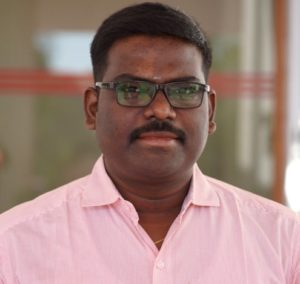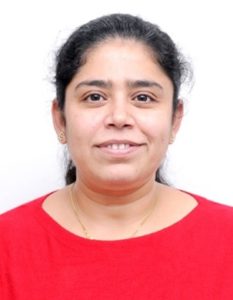Read Sankarasekaran’s open access Emerging Investigator article Tröger’s base-containing fluorenone organic polymer for discriminative fluorescence sensing of sulfamethazine antibiotic at ppb level in the water medium, DOI D3PY00857F.
Check out our interview with Sankarasekaran below.
How do you feel about Polymer Chemistry as a place to publish research on this topic?
Polymer Chemistry is a wonderful platform to showcase research from polymer and macromolecular chemistry. My experience so far has been very pleasant working with Polymer Chemistry. The review process was smooth and the editorial team was very helpful during our paper submission.
What aspect of your work are you most excited about at the moment and what do you find most challenging about your research?
We are interested in the design and synthesis of functional organic and hybrid polymers for applications in fluorescence-based sensing and adsorptive removal of environmental pollutants and contaminants. The most exciting thing about our work is the easy design and facial modulation of the functional properties of polymers. The synthesis of targeted polymer with desired properties and superior materials properties is often challenging.
In your opinion, what are the most important questions to be asked/answered in this field of research?
The most important question to be asked in this field is how the structure, texture, and functional properties of polymeric materials can be tuned toward real-world applications. How can the sensing and adsorption properties can be modulated to develop efficient molecular adsorbents?
Can you share one piece of career-related advice or wisdom with other early career scientists?
Identify unique research problems and explore them. The field of polymer chemistry has limitless opportunities to unveil.
Find out more about Sankarasekaran’s research on his faculty webpage.












